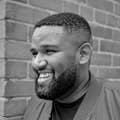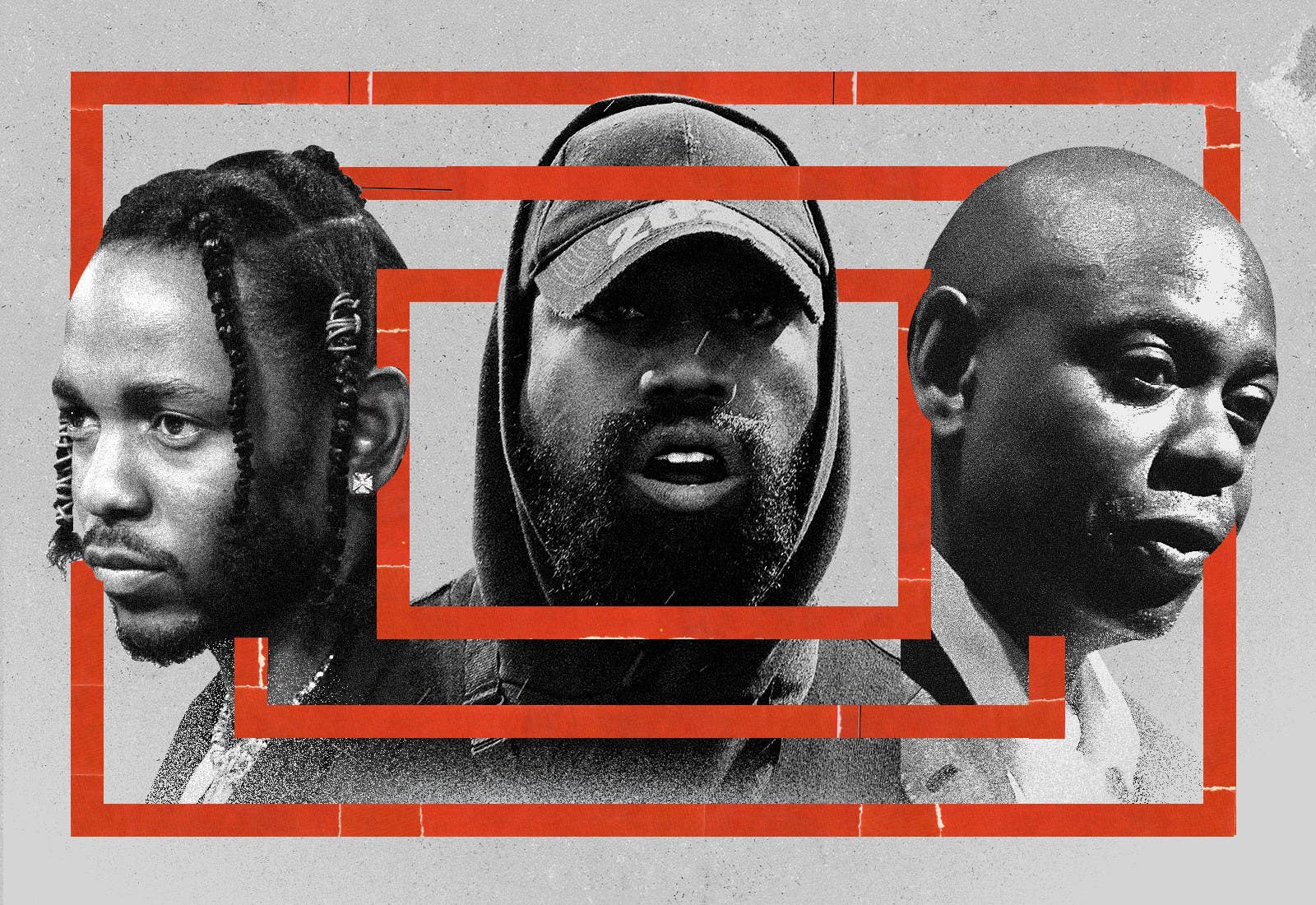
The eye of Hurricane Katrina never passed over New Orleans. The city was forecast to be directly in the path of the storm, but on Aug. 29, 2005, Katrina hit just east of the city, sparing it from extensive wind damage. For a brief moment, it seemed that New Orleans had held up well.
This is important context for understanding the weight of what happened next: The levees failed, flooding the city. Fifty-three different levee breaches left 80% of New Orleans underwater. The floods knocked out power and communication. Hundreds of people died, more than half of them Black.
Much of the subsequent news coverage framed the catastrophe as the consequence of a natural disaster. But in reality, wide-scale governmental failure had led to the levees’ neglected condition. And more failure followed, as George W. Bush’s administration lagged on its Katrina response.
So, when Kanye West went off script at the NBC fundraising telethon shortly after the storm, startling the nation with unusual honesty, he became our guy, a precise spokesperson for Black people watching a nation fail Black people... again. It’s often remembered as a brash event, a daring act. What gets written out of our remembrance is how nervous, emotional, and uneasy West seemed. Just a minute or so before that outburst, after West had taken his cue from copresenter Mike Myers, he paused, then launched into a rant that seemed improvised and incoherent, but emotionally resonant: “I hate the way they portray us in the media,” he said. “If you see a Black family, it says, ‘They’re looting,’ and if you see a white family, it says, ‘They’re looking for food.’” When West punctuated his appearance with the now-famous statement — “George Bush doesn’t care about Black people” — it became codified in pop culture history.
In the intervening years, West, now going by Ye, has said lots to cement him as our guy. He’s been an outspoken critic on Black issues, like how schools fail Black children or the racism of the criminal justice system. But he has said even more to lose him that status. This month, he continued to destroy the goodwill he has left, first by wearing a White Lives Matter T-shirt to his Yeezy Season 9 launch at Paris Fashion Week, and then posting antisemitic tweets claiming that he will go “death con 3” on “JEWISH PEOPLE.” If anyone is still supporting West, they’re not publicly admitting it anymore. LeBron James’s interview show The Shop pulled its episode featuring him. JPMorgan Chase has notified West he will not bank with them anymore. Public support for him is cratering in a way we have not seen before, not even after the rapper told TMZ in 2018 that slavery was a choice, or after he said iconic abolitionist Harriet Tubman “never actually freed the slaves.”
West is not alone in losing the status of being our guy. Kendrick Lamar has found himself begging — pleading on his latest album — to be taken off the moral pedestal we put him on. Lamar is lashing out, pushing back against the idol status he has long held, and featuring accused rapist Kodak Black (Black was indicted on first-degree sexual assault charges but pleaded guilty to the lesser charges of first-degree assault and battery) on his record seems like proof that he’s not interested in being a moral metronome. Dave Chappelle, who once took it upon himself to speak for Black people and extract laughter from the painful reality of racism through lacerating comedy, now seemingly finds his raison d’etre in needlessly provoking rage with anti-trans jokes that feel like a betrayal of the legend he has built as a fearless critic of myopic thinking. He is now comfortable with tasteless anti-trans bits on the stage and shutting down low-income housing offstage.
West, Lamar, and Chappelle were once heroes to me. They made it their business to be symbols for young Black men. They used their art to name injustice, portray it vividly, render it clearly, and blast those responsible for it. They filled a cultural void and served as spokespeople. Now, they are no longer fit for the job — West has mistaken hateful screeds and personal grudges as speaking truth to power, Chappelle has lost the plot on where he should direct his fiery skill, and Lamar simply doesn’t want the job anymore.
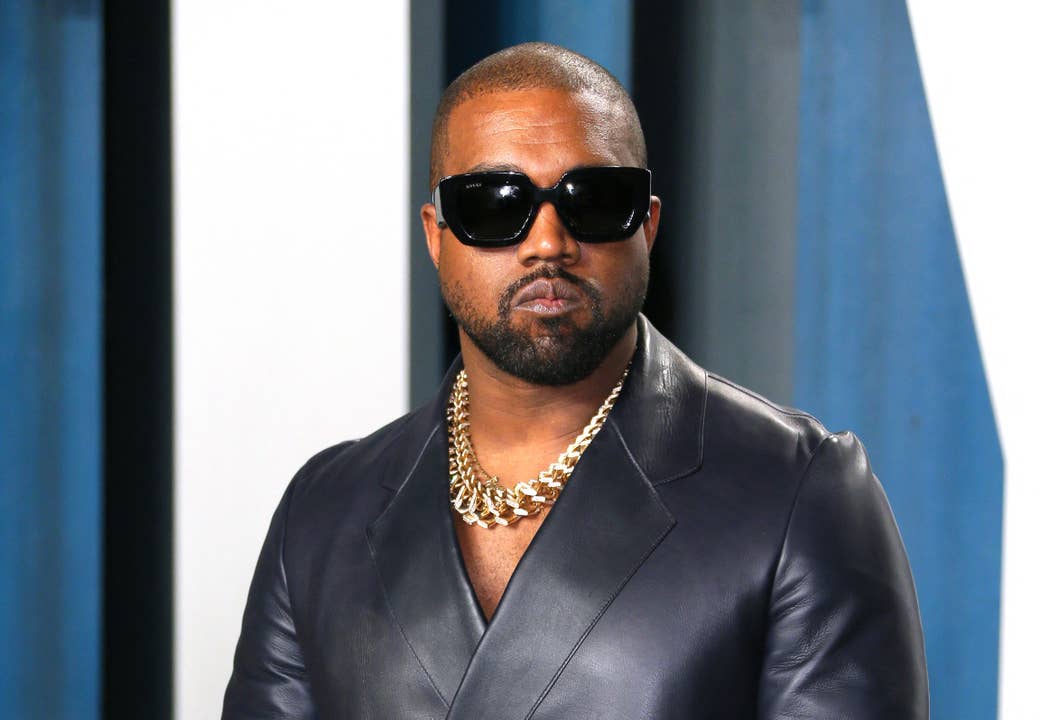
The influential German artist Joseph Beuys introduced the concept of “social sculpture,” a way of transforming real life into art; he also believed in art’s ability to transform society. Sometimes his installations unsettled people, like his “I Like America and America Likes Me,” in which he spent time with a live coyote. He was known for provoking “raw emotional responses” from the audience (“fury particularly pleased him,” the Guardian notes).
It’s perhaps not a surprise that West sees himself as a kind of avatar for Beuys: A few days after the White Lives Matter maelstrom, West claimed in a since-deleted Instagram post that he is “the most relevant performance artist on the planet... I am Joseph Beuys Andy Kaufman David Hammons.” Andy Kaufman, of course, turned his whole life into performance art and rarely broke character. David Hammons is an influential Black artist who famously taunted and berated the art world that celebrated him. (“The art audience is the worst audience in the world,” Hammons once said. “It’s overly educated, it’s conservative, it’s out to criticize and not understand. Why should I spend my time playing to that audience?”) When West introduced the Yeezy presentation with an angry but misplaced rant — aimed at the fashion world for not accepting him, during a VIP fashion show at Paris Fashion Week for industry gatekeepers — the Hammons jumped out.
Those of us who looked up to West have grown accustomed to twisting ourselves into intellectual pretzels finding justifications for his stunts.
Those of us who looked up to West have grown accustomed to twisting ourselves into intellectual pretzels to find justifications for his stunts. Some of us have been doing it since the 2009 MTV VMAs, when he interrupted Taylor Swift’s acceptance speech onstage. Or again when he declared Bill Cosby innocent. It becomes easy to sustain because you don’t want to believe the worst about your heroes. Even this time around, some might find it hard to resist contextualizing West’s provocations in the context of performance art, something like, “Ye isn’t actually antisemitic, he was doing social sculpture, playing with our emotions to make a point!”
This sounds far-fetched, but much of what happened with West in the last two weeks is still in keeping with a longstanding theory that West has been engaged in an elaborate performance art piece since at least 2018. It’s partly the legacy of West’s previous bravery, his glorious truth-telling, the reason some of us elevated him in the first place. “I am a god,” he rapped, and we agreed.
But now, West has crossed a new line. If his slavery comments were ignorant, his antisemitism is downright dangerous. The rapper has long flirted with antisemitism — he has casually repeated the baseless antisemitic conspiracy that Jews run the world, and has frequently rapped positively about Louis Farrakhan, the leader of the Nation of Islam, who has been explicitly antisemitic for much of his public career, railing against “Satanic Jews.” But West’s tweets transcend flirtation and veer into the territory of violent threats.
West’s dangerous antisemitism is particularly acute because he has courted America’s Christian right. Last week, West appeared on Tucker Carlson’s show on Fox News, where the host called the rapper a “kind of Christian evangelist.” Carlson told his viewers not to discount West’s views as the ideas of someone with mental illness. Just a few days later, West tweeted his “death con 3” sentiment. In a cultural moment when antisemitism has grown among evangelical Christians, who is listening to West? And how closely are they listening?
West’s consistent pattern of outrage generation preceding a new album or a new fashion line or a new tech gadget cannot be ignored. And it often works. West gets the attention he craves, and it does wonders to boost the profile of the business endeavor he is pushing at the time. Donda, his 2021 album, was catapulted to an Album of the Year Grammy nomination despite a colossally messy rollout.
Unfortunately, Black people are the only canvas West has. West is no longer an entertainer but a multi-industry business with one clear marketing strategy: provoke Black people, aimlessly and without ends, for the purposes of directing attention toward the newest product. With the White Lives Matter stunt, West is once again manipulating Black rage and Black pain and using that momentum in the service of Ye Inc.
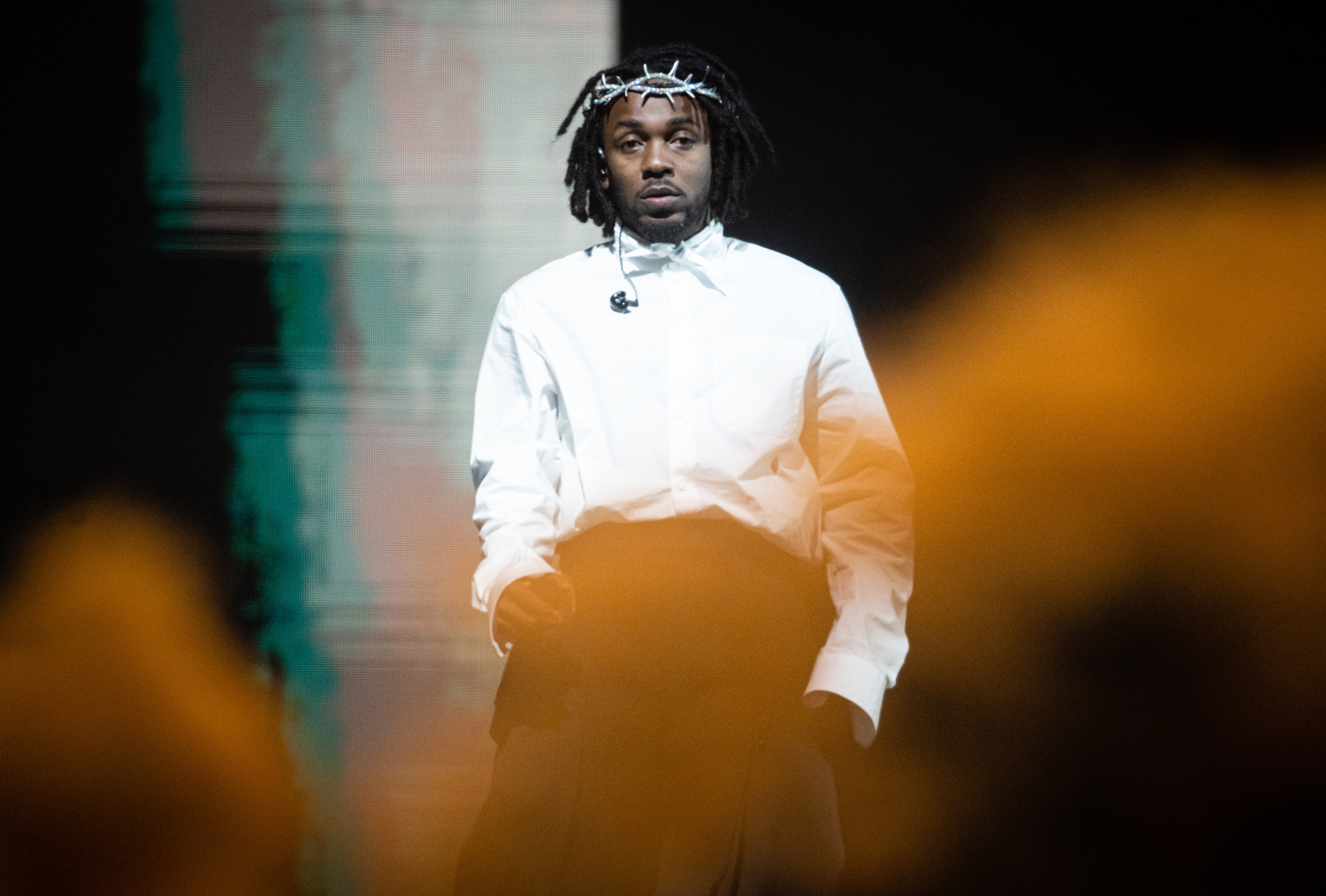
I guess you could say Kendrick Lamar never asked for this. How could he have known how high he would be elevated? How could he have known that “Alright” would become the anthem for the Black Lives Matter movement? How could he have known that thousands would take to the streets and find refuge in the hope it offered? Regardless of whether he anticipated becoming a spokesperson for Black pain, his 2015 album To Pimp a Butterfly solidified him as a leading chronicler of the weight of racism. As Black Lives Matter was ascendant, Lamar rose to meet the moment.
All the same, he doesn’t want the job anymore. Lamar makes that clear on his latest album, Mr. Morale and the Big Steppers, a complicated tapestry of recklessness and poise. On his previous albums, Lamar has done an excellent job of looking outward: Good Kid, M.A.A.D. City is an album about God. To Pimp a Butterfly tangles with the meaning of freedom. DAMN, which won the 2018 Pulitzer Prize, is about redemption and damnation. Throughout his career, Lamar has been praised for his rich rendering of Black life and his close observations of the world he occupies. Critics have already speculated that he might be the greatest rapper of all time. But on Mr. Morale, the stenographer becomes a memoirist; Lamar hesitantly gives us an album in his own image.
Mr. Morale is littered with Lamar’s anxieties, the main one being that if he is too honest, he might be canceled.
Mr. Morale is littered with Lamar’s anxieties, the main one being that if he is too honest, he might be canceled. Fundamentally, the album’s project is to merge two Kendricks: the one he is believed to be by people who admire him, and the one he actually is. “I ain’t taking shit back / Like it when I’m pro Black / But I’m more Kodak Black,” he raps on “Savior.” Mr. Morale is, above all, an admission that Lamar has politics some listeners won’t like. He concludes “Father Time” by poignantly asking men to “Give the women a break / Grown men with daddy issues,” only to cede the floor on the next track to Kodak Black, who has been accused of sexual assault, but pleaded guilty to lesser charges.
Lamar’s cringey respectability politics have been an ongoing debate — the rapper was accused of victim-blaming after, in the wake of the protests in Ferguson after police killed Michael Brown, Kendrick told Billboard: “When we don't have respect for ourselves, how do we expect them to respect us? It starts from within. Don't start with just a rally, don't start from looting—it starts from within.” But in Mr. Morale, Lamar abdicates any claims to moral authority. The album is the resignation of a poet laureate who doesn’t want the laurels anymore.
Yet if Mr. Morale is a cry of disinheritance, what is left? Lamar remains vague and noncommittal. His demand on the album is to be messy, offensive, even hurtful without apology. “Niggas killed freedom of speech / Everyone sensitive,” he declares on “Worldwide Steppers.” He carelessly litters a tribute to a transgender relative with a slur. He doesn’t much care if we’re on board with the project, or what we get out of it — “I am not for the faint of heart,” he growls — because it’s more important to him that he rid his psyche of any expectations we’ve put on his shoulders by heaping so much acclaim upon him. Lamar is saying: You are asking too much of me. I am not your guy — find somebody else.
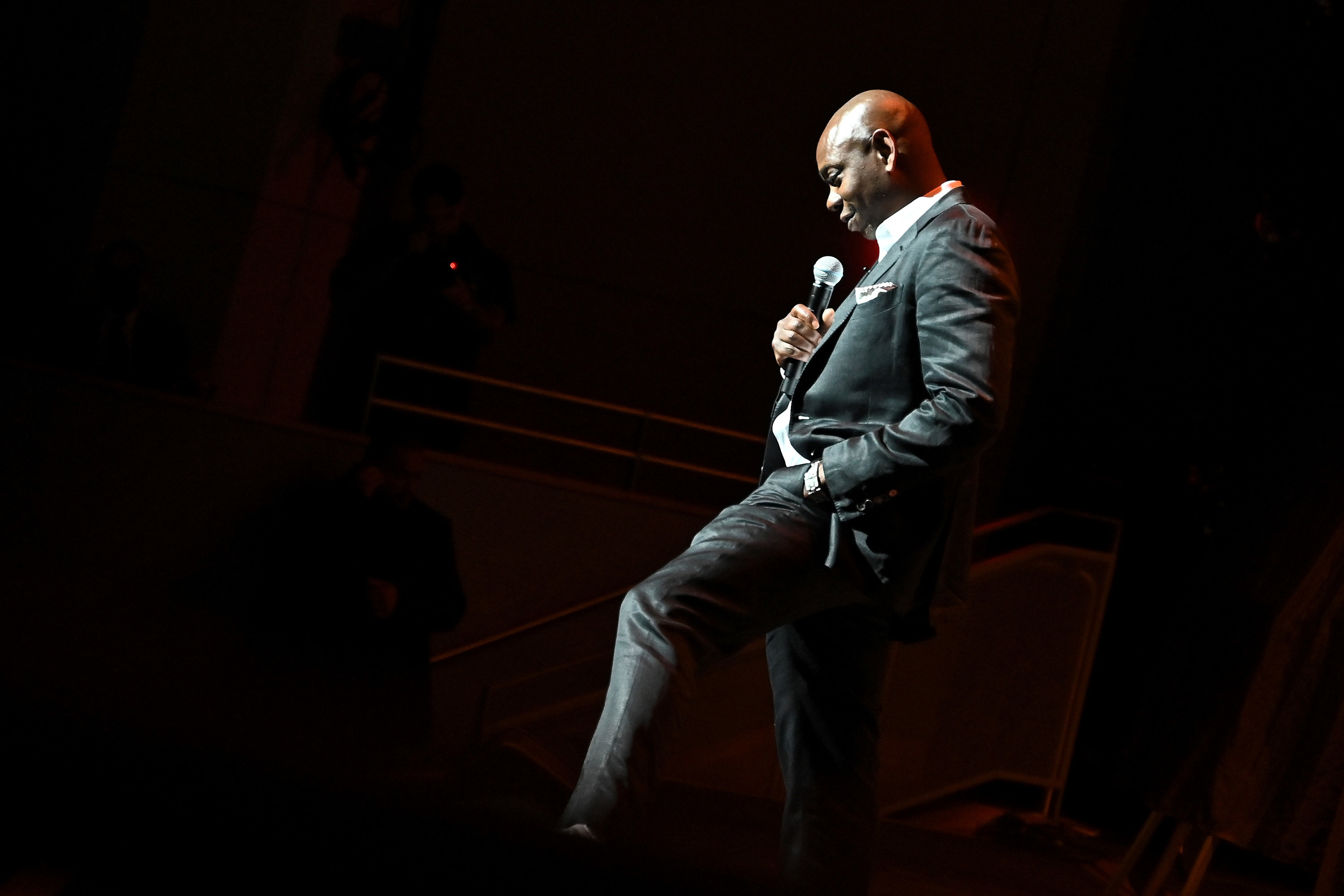
The most powerful moment in Dave Chappelle’s 2021 Netflix special The Closer happens because of an interruption. After the comedian mentions the North Carolina anti-trans bathroom bill, someone in the crowd lets out a loud “whoop!”
Chappelle is quick to interject. “No, no, no,” he retorts, and then spends a few minutes explaining the cruelty of the law. It is an electrifying moment, immediately reminiscent of Chappelle’s most poignant career move: In 2004, the comedian walked away from a $50 million deal with Comedy Central because he worried that white people were laughing at all the wrong jokes about racism. That intolerance for misinterpretation, the refusal to facilitate humor for racists, made him a legend. Now here he was again, correcting an audience member who interpreted his jokes as calls for malice.
“I am not indifferent to the suffering of someone else,” Chappelle proclaims in The Closer, which was ostensibly his last comedy special for a while. Having been criticized for multiple jokes at the expense of women, gay people, and trans people, the comedian pushes back. I am not cruel, he seems to be saying. I just want to be able to joke about what I want.
It’s a compelling argument. But over the span of Chappelle’s Netflix deal, which began in 2016 and is reportedly worth tens of millions, the comedian has courted outrage. The Closer has an answer for this, too. The jokes about #MeToo? Chappelle says that was about challenging the movement for centering wealthy women. The jokes about queer people? The comedian frames those as a challenge to how gay people retreat into the safety of whiteness in the face of threats (because, apparently in this conception, queer people of color don’t exist).
What does it mean to be bought into a worldview just because it benefits you? Chappelle does not push any further.
In a particularly muddled stretch, Chappelle tells the story of a slave who was freed and then went and bought slaves because “he was invested in a construct of ‘this is what successful people do.’” Chapelle says this explains his jokes about trans people: because Chappelle is a man with kids and a wife, he claims he is “invested in the gender construct.” Here, Chappelle offers an unsatisfying and unnuanced conclusion: “This does not mean that I don’t think another point of view can’t exist.” What does it mean to be invested in the gender construct? What does it mean to be bought into a worldview just because it benefits you? Chappelle does not push any further. This is especially frustrating to watch from a comedian who has built a name on pushing further, on playing with discomfort.
In June 2022, Chappelle was in his hometown of Washington, DC, delivering a speech to the Duke Ellington School of the Arts, the arts high school he credits with his early success. But the event — celebrating the school’s theater, newly renamed after him — had been delayed: The ceremony was meant to take place in December 2021, but after The Closer led to backlash online and in the school community, the school rescheduled.
His speech in DC was turned into a Netflix short released in July. “The more you say I can’t say something, the more urgent it is for me to say it, and it has nothing to do with what you’re saying I can’t say,” Chappelle said. “It has everything to do with my right, my freedom of artistic expression.” For Chappelle, it seems, the importance of being unrestrained comes at the expense of anything else. “If you have a better idea, then express it, and you can beat me. It’s that easy.”
Chappelle spends a significant portion of the speech addressing the controversy over The Closer. “No matter what they said about The Closer, it was still the most watched comedy special in the world,” he told the crowd. “And I am still of the mind — and I say this with all humility — it is a masterpiece. I challenge all my peers to make its equal. They cannot.”
Just a few weeks after the speech was released online, after a Chappelle performance in Minneapolis was moved due to protesters, the comedian called people who protested “transgender lunatics” and called monkeypox a “gay disease.”
During his school speech, Chappelle tells the audience that it will “maybe be decades before you see someone in my genre as proficient as me. I am maybe a once-in-a-lifetime talent. I am telling you the truth.” And for the most part, it is actually true. Chappelle has done more than enough to be in the running for most talented comedian of my lifetime. He has pioneered an ethos of piercing clarity mixed with a penchant for inventing catchphrases that bleed through to the wider culture (see: “Rick James, bitch!” or anyone who shouts “Kobe!” while throwing anything to anyone). But contemporary Chappelle is largely out of ideas — he has been frequently repeating himself, singularly obsessed with what he feels he is entitled to say, at the cost of all the things he perhaps should be saying instead. His brilliant 2020 special in the wake of the police killing of George Floyd was a brief respite from his one-note late-career turn; it showed us the Chappelle who can masterfully paint the evils of white supremacy is still around. He’s just choosing a different fight.
Offstage, Chappelle was briefly embroiled in another controversy after he spoke in opposition to an affordable housing portion of a proposed development in Yellow Springs, Ohio, where he lives. The comedian plans to open multiple businesses in the town, including a comedy club and a restaurant, but threatened the town council to “take it all off the table” if the proposal goes ahead. (His rep denied that Chappelle is against affordable housing.)
Where Chappelle was once uneasy with power and questioned how it changes people, he now seems satisfied to wield it without probing the meaning of his own influence. If he once spoke for us, who does he speak for now?
West, Lamar, and Chappelle share an acute anxiety about cancel culture that runs through all of their recent work. “What the fuck is cancel culture, dawg,” Lamar raps defiantly on “N95,” asserting his right to “say what I want.” In the middle of his antisemitic rants, West tweeted, “Who you think created cancel culture?”
West, Lamar, and Chappelle share an acute anxiety about cancel culture that runs through all of their recent work.
All three overstate the power of cancel culture, rendering it as a malignant, organized force coming for their livelihoods when it is, at best, an aggregation of an online posture toward a person or an idea. Public opinion may have turned against them in some quarters, but West continues to hold major cultural sway in music and in fashion, raking in millions from both. Lamar’s Mr. Morale debuted at No. 1 and became the first hip-hop album of the year to reach a billion streams on Spotify. Chappelle was paid $24.1 million for The Closer, and between 2018 and 2020 won three consecutive Grammys for Best Comedy Album.
It seems the Black men I grew up admiring have grown suspicious of having their power questioned. Just a few weeks ago, Jay-Z was on Twitter Spaces, waxing defensive about eat-the-rich criticisms. The rapper compared being called a capitalist to the n-word.
A part of me understands their anxiety. West, Lamar, and Chappelle all came up in an era when they had to frequently be suspicious of the motives behind criticisms of Black men. Usually, those criticisms had racist underpinnings. But, used to protecting themselves from racist critiques, they’ve overcorrected, deflecting reasonable questions from the people they once uplifted. West is never going to give us an explanation for the White Lives Matter shirt, beyond “because they do.” Lamar has no interest in elaborating on his resignation letter. Chappelle is still capable of deep introspection, but does not seem interested in pursuing it. None of these men has been meaningfully canceled — if we have stopped listening to what they have to say, the blame for that lies squarely on their shoulders. ●
